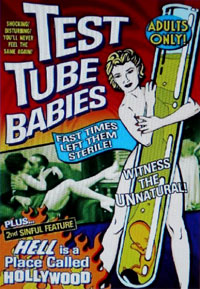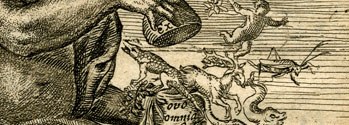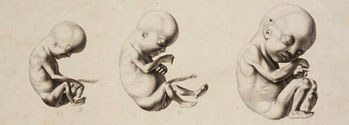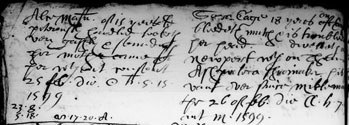Thursday 3 December 2009
4.30pm in Seminar Room 2, Department of History and Philosophy of Science
Angus McLaren (University of Victoria)
Divorcing sex and reproduction: the discussion of artificial insemination in Britain, 1918–1948
 A 1922 trial marked the first time in history that a common law court dealt with the subject of artificial insemination. Why did the issue surface at this particular time? Seeking to provide some answers directs our attention to the ways in which commentators in the inter-war years attributed enormous social significance to a rarely employed but simple form of medical treatment. In the early twentieth century, just as the subject of birth control split the medical world into radical and populist types in favour of such discussions and the professional elite who were opposed, remarkably similar responses were made to the issue of artificial insemination. Two additional points are made by extending our investigation into the 1930s and 40s. The first, which is hardly surprising, is that a procedure welcomed by some as a remedy for the unhappily infertile was long regarded by others as posing a threat to Christian morality, traditional gender relationships, and the respectability of the medical profession. The second and more unexpected finding is that such debates reveal the extent and tenacity of eugenic notions in Britain. Both opponents and defenders of artificial insemination argued that they were motivated by a desire to improve the race.
A 1922 trial marked the first time in history that a common law court dealt with the subject of artificial insemination. Why did the issue surface at this particular time? Seeking to provide some answers directs our attention to the ways in which commentators in the inter-war years attributed enormous social significance to a rarely employed but simple form of medical treatment. In the early twentieth century, just as the subject of birth control split the medical world into radical and populist types in favour of such discussions and the professional elite who were opposed, remarkably similar responses were made to the issue of artificial insemination. Two additional points are made by extending our investigation into the 1930s and 40s. The first, which is hardly surprising, is that a procedure welcomed by some as a remedy for the unhappily infertile was long regarded by others as posing a threat to Christian morality, traditional gender relationships, and the respectability of the medical profession. The second and more unexpected finding is that such debates reveal the extent and tenacity of eugenic notions in Britain. Both opponents and defenders of artificial insemination argued that they were motivated by a desire to improve the race.
There will be tea before the lecture, at 4pm in Seminar Room 1, and a drinks reception afterwards, at 6pm in Seminar Room 1.
Discussion led by Angus McLaren
Thursday 3 December at 11.30am in Seminar Room 1 – all welcome
'A race of human machines': robots and eugenics in inter-war Britain
In April, 1923 the play R.U.R. or Rossum's Universal Robots by the Czech dramatist Karel Èapek was presented at St Martin's Theatre. As a result, the term 'robot' entered the English language and such humanoids were immediately hailed as icons of modernity. In the inter-war period a host of commentators wrestled with the challenges posed by such 'mechanical slaves'. Why such a fascination? Many of the reasons are fairly obvious. For many in Britain, uncertain of the benefits of mechanization, the mechanical man threatened to displace the human worker. What is less obvious is that the robot story enjoyed added resonance because it could also be read as a eugenicist parable. It is no exaggeration to say that when the British were talking about automatons they were consciously or not talking about the lower classes and how they might best be controlled. Robot stories and eugenic accounts told much the same tale. They both highlighted the promises and threats posed by modernity. The harnessing of science and industry, they argued, could lead to unparalleled progress, but if not directed by an enlightened elite with the interests of the race at heart, the unleashed forces of rationalization would cause disaster.



